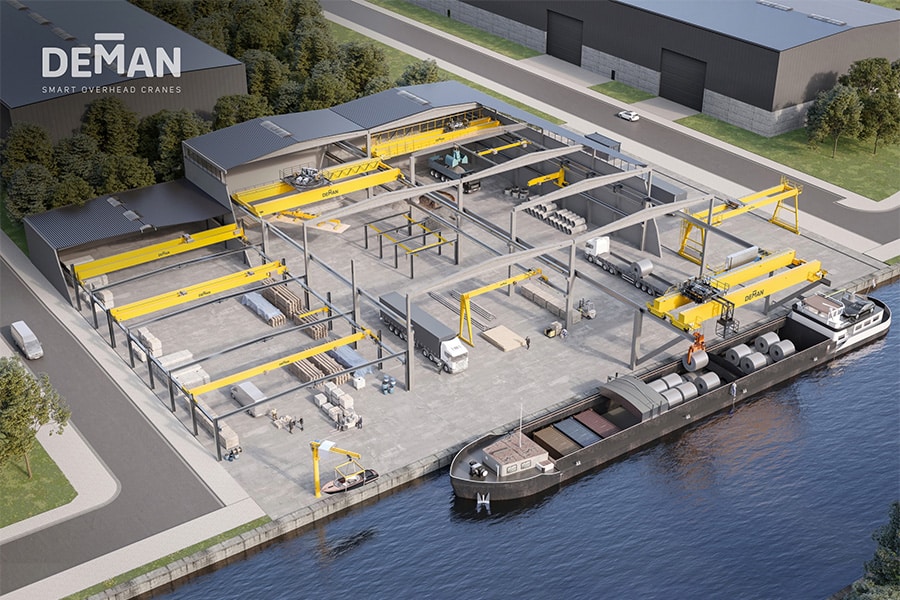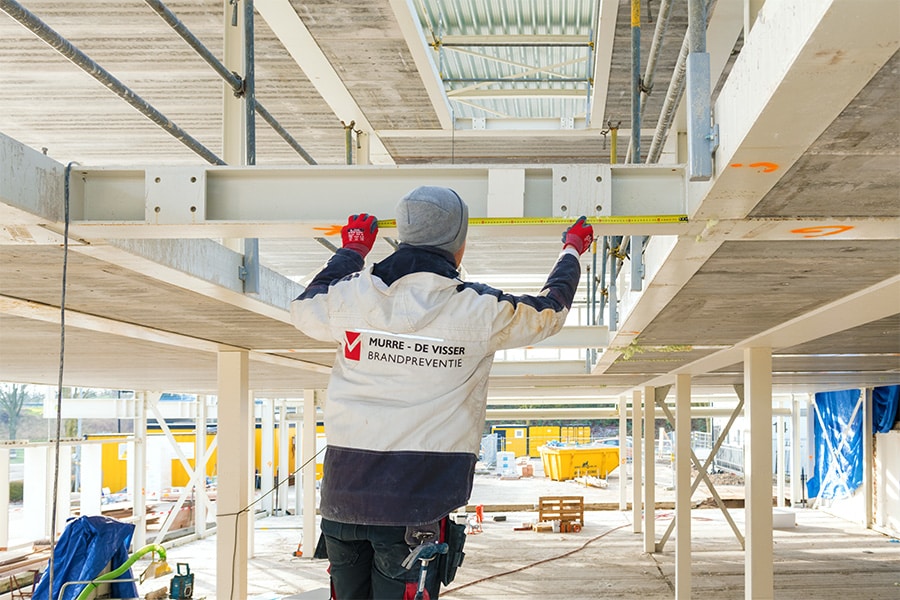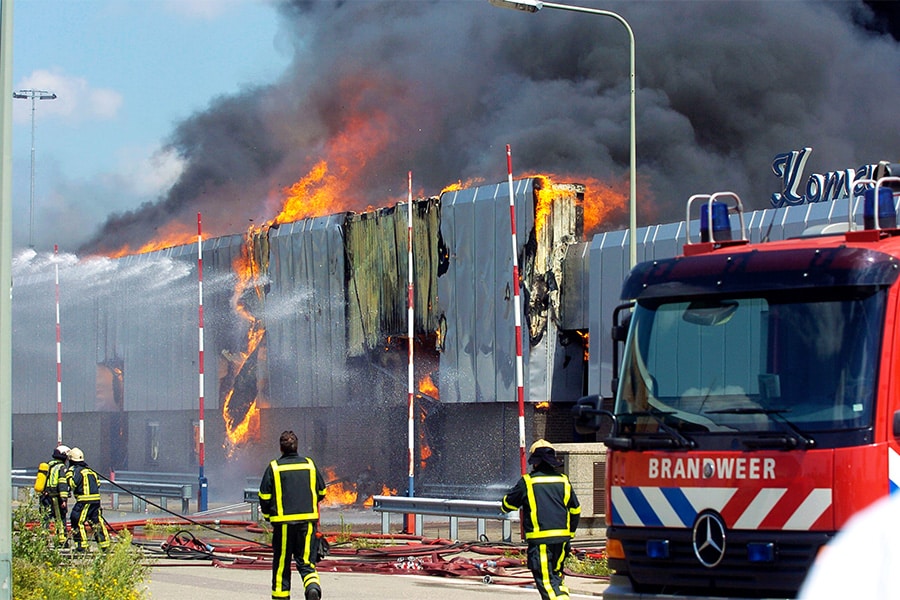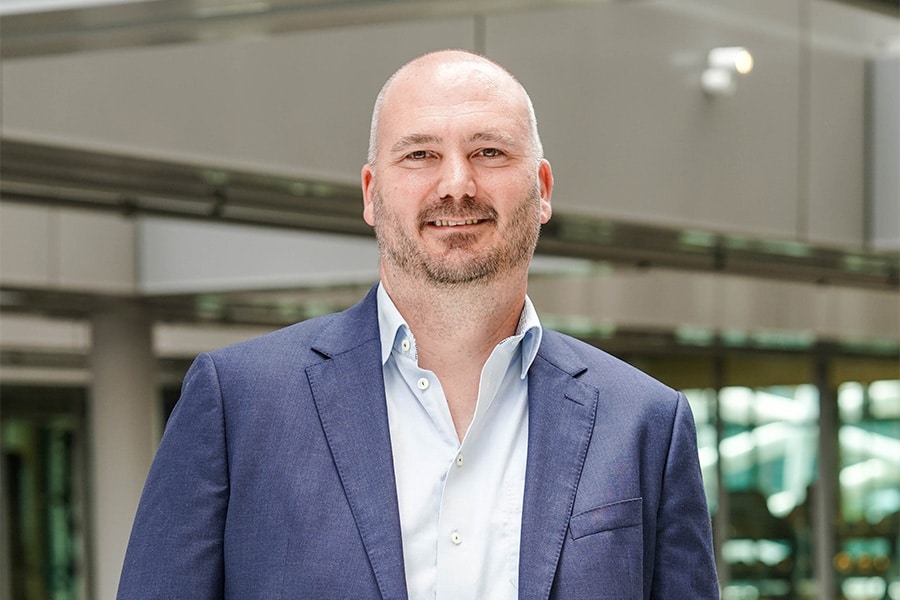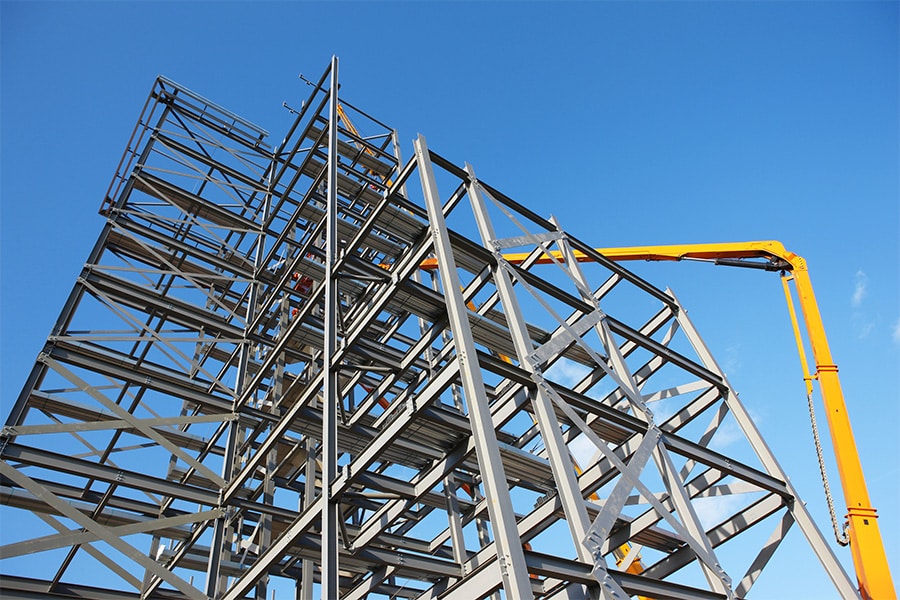
Responding to growing demand for sustainable connections
In a world where sustainability is becoming increasingly important, Stafa Group B.V. of Maarheeze shows how a modern company gives concrete substance to corporate social responsibility. The specialist in fasteners and logistics solutions is taking measures on several fronts to reduce its ecological footprint. From smart adjustments in its own premises to making responsible choices in the supply chain.
Shorter chains, lower impact
The demand for more sustainably produced fasteners is growing rapidly. Stafa is responding to this by expanding its range to include brands from Europe, such as August Friedberg. "This strategic choice not only ensures shorter delivery times and better availability, but also makes an important contribution to reducing emissions through shorter transport lines," says Joep van Gool, financial and operations director at Stafa. "Fewer kilometers means fewer CO2 emissions. A simple but effective way to reduce the ecological impact of the product chain." In addition, August Friedberg has a Platinum Ecovadis rating of 99%, a recognition of the company's broad and integrated sustainability policy. "This partnership allows us to offer HV sets that are manufactured in Europe and meet the highest European standards. Our SB sets for non-prestressed structures are also manufactured within the EU. In addition, we supply HV weld bolts according to EN 14399-8 and injection bolts are also part of our product range as standard."
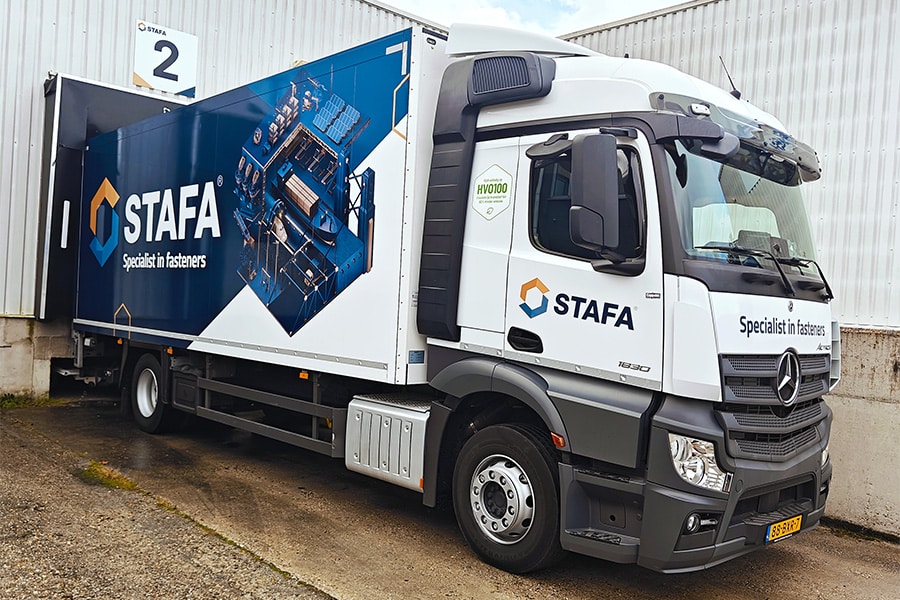
More sustainable connections
Stafa Group and its partners are committed to sustainable steel construction by producing construction bolts (EN 15048 ISO 4017/4014, M12-M24) with raw materials from 92.4% recycled material, processed in an electric arc furnace at a European steel manufacturer. This approach significantly reduces CO2 emissions and fully complies with European quality standards, actively contributing to a more sustainable construction industry. "Adding the Lubo International brand to our range also emphasizes the sustainable course, with fastener products provided with a PFAS-free coating that is free of harmful substances. Thus, the offering seamlessly aligns with stricter environmental standards and supports customers in responsible material selection throughout the chain," Van Gool said.
CBAM Scheme
As you may know, the Carbon Border Adjustment Mechanism (CBAM) scheme is coming. "This important European measure aims to make the entire chain as sustainable as possible by fairly pricing CO2 emissions outside the EU," explains Pim van Leeuwen, commercial director at Stafa. Since Oct. 1, 2023, there has been a transitional phase in which reporting is mandatory, and from Jan. 1, 2026, the scheme will take full effect. Companies will then have to submit CBAM certificates based on imported CO2 emissions.
"At Stafa, we closely follow the developments around CBAM (Carbon Border Adjustment Mechanism)," assures Van Leeuwen. "Because we as importers are responsible for the remittance and administration, we take care of the entire process. Our customers do not have to take any additional steps for this."
To minimize the costs involved in the CBAM, Stafa purposefully selects suppliers who have demonstrably put their CO2 management in order. "In this way, we minimize the CBAM levy and ensure that we have to charge our customers as little as possible. At the same time, this contributes to a fairer playing field: more polluting factories automatically receive fewer orders as their products become more expensive. This is how we are building a transparent, responsible and future-proof supply chain together."
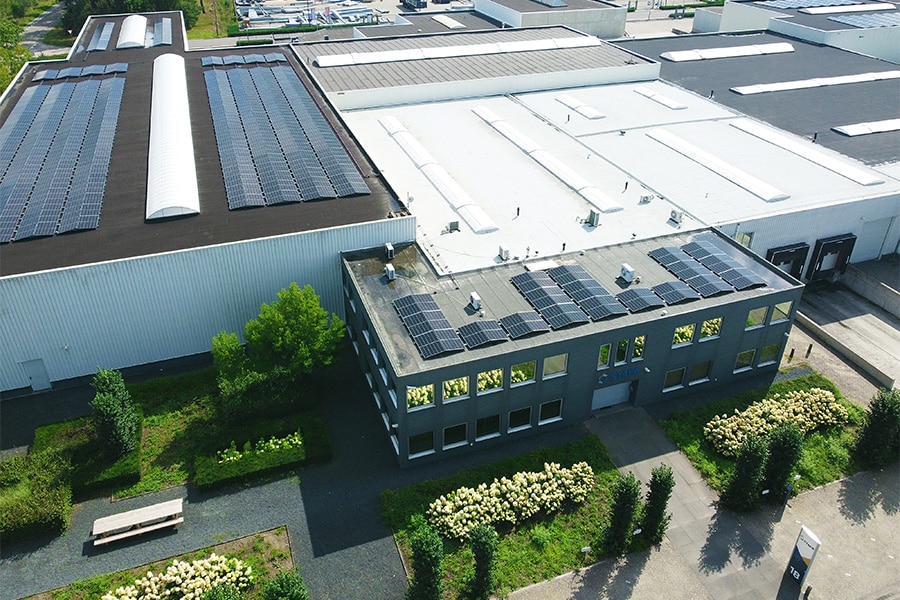
Internal sustainability
Stafa is also taking solid steps toward sustainability within its own organization. "A telling example of this is the re-insulation of the roofs and the closing of skylights in the warehouse," says Van Gool. "Where previously these domes let in a lot of sunlight and thus heat, in the summer months this turned out to create an unpleasantly warm working environment. By sealing them, the temperature inside the warehouse remains more stable and cooler, which increases working comfort for employees and reduces the need for energy-consuming cooling systems."
Furthermore, the roof of the company building has now been fitted with six hundred solar panels. These provide a substantial share of the company's electricity needs and represent an important step toward energy independence and lower CO2 emissions. The logistics have also been addressed: all Stafa vehicles now run on HVO100 fuel. This renewable diesel emits up to 90% less CO2 than fossil diesel and thus contributes directly to making transport more sustainable.
Progressive and responsible
With these concrete measures, Stafa Group B.V. shows that sustainability is more than a trend: it is a strategic pillar. By choosing regional suppliers, environmentally friendly products, energy-saving adjustments and cleaner transport, the company proves that economic growth and environmental awareness go hand in hand. Stafa is literally and figuratively building a future-proof connection for customers, employees and the planet.
Heeft u vragen over dit artikel, project of product?
Neem dan rechtstreeks contact op met Stafa Group B.V..
 Contact opnemen
Contact opnemen
